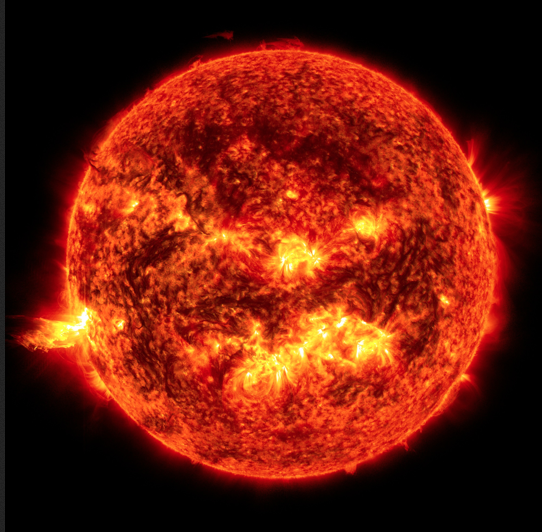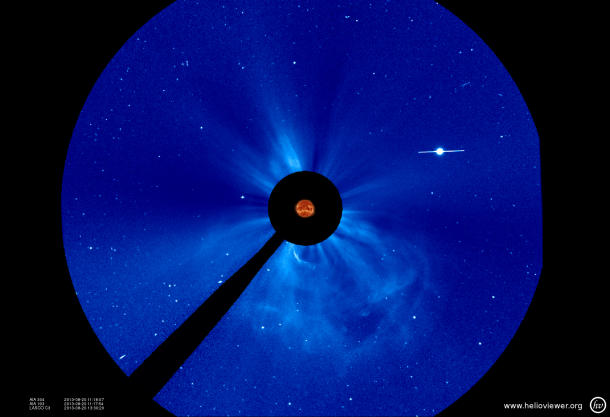
Coronal mass ejection (Credit: ESA and NASA/SOHO)
NASA spotted a colossal "coronal mass ejection" erupting off of the sun on Tuesday morning. This solar phenomenon spewed billions of tons of particles into space at speeds of 570 miles per second and they are currently headed toward Earth, according to the space agency.
NASA estimates that the particles will reach our planet in one to three days and could cause a geomagnetic storm.
"These particles cannot travel through the atmosphere to harm humans on Earth," NASA said in a statement, "but they can affect electronic systems in satellites and on the ground."
This means the power grid and any services that use satellites, like cell phones and GPS, could be disrupted. During a geomagnetic storm earlier this year, radio communications went down for a short while. And a 1989 storm was blamed for a massive power outage in the Quebec province of Canada.
While 570 miles per second sounds astoundingly fast, NASA said this is an average speed for a coronal mass ejection. Eruptions of this strength have typically brought only mild effects in the past, NASA said.
Besides affecting satellites and the power grid, the geomagnetic storms can also cause stunning auroras in hues of green, blue, and red. As the fast-moving particles crash into Earth's magnetic field, they light up the atmosphere wherever they hit.
NASA said it will provide updates about the geomagnetic storm if needed.

NASA image of the coronal mass ejection that erupted off the sun on Tuesday. The bright white object to the right is the planet Mercury.
(Credit: ESA & NASA/SOHO)
Source courtsey of Eric Miller.
Source: by Dara Kerr c|net